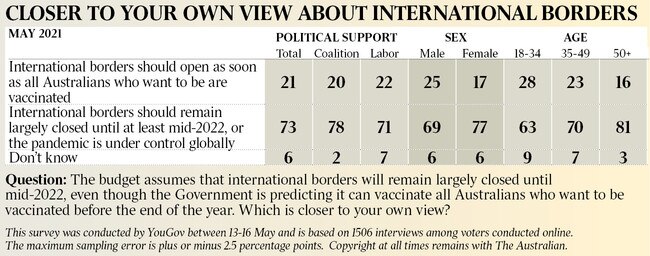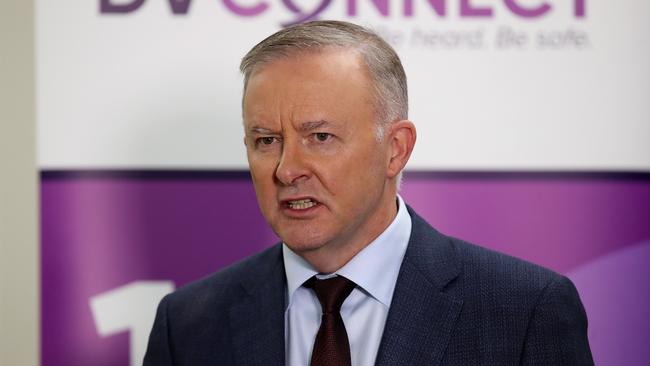
That was Peter Costello’s 12th and final budget, the great transference to middle class welfare, before the Howard government went on to lose an election six months later. But Costello and John Howard didn’t have a nation gripped by the fear of pandemic. And Anthony Albanese isn’t Kevin Rudd.
But nor is Scott Morrison a prime minister saddled with the electoral burden of longevity.
Yes, the government will be miffed by the fact that while the second pandemic budget by most measures could be considered popular, it didn’t translate into the mythical post-budget poll bounce. But Morrison can be equally buoyed by the fact that the government is in a considerably better position than it was two months ago.
Given Labor remains in front on a two party preferred split, albeit by a slim margin, it remains too far behind to win.
No opposition in history has won government by being so narrowly in front going into an election campaign. The great irony. Come election time when people will be forced to make a decision rather than a pondering assessment, the Coalition could expect the vote to break strongly in its favour.
On borders and economic management, the fundamental questions, Labor is nowhere in sight. And whether the election is this year or not, a soon as August or as late as May, Scott Morrison has already established the parameters on which it will be fought.
And on the two leading indicators, he has tapped into a communal expectation of national leadership that has already returned four incumbent state and territory governments in the past nine months based on strong support for the provincial leaders. The crushing majority of sentiment in favour of a closed border posture is no fluke of fortune. Morrison has been tilling this soil since the Indian crisis shifted a national debate that only two months ago was focused on rape allegations, women’s rights and the sexual depravities of parliamentary staffers.
Not only has the budget given the government a way out of this political crisis, it has enabled it to refocus the national discussion around the two key issues. Protecting the health of Australians and protecting the economy. He has effectively transferred the border parochialism of state premiers to a national level. At the same time, Treasurer Josh Frydenberg has won the argument on spending.
It is perhaps more telling that the most significant movement in the first post-budget poll was the vote shifting on the far Left.

There are two ways of reading the not insignificant temporary devolution of Labor primary support to the Greens. Either the polls are wrong or Anthony Albanese’s budget reply speech wasn’t enough of a pitch to the Left as it has been portrayed.
This was a deliberate strategic decision from the Labor leader who is still trying to win the war of the last election rather than fight the next one. Giving the government nothing on which to mount a scare campaign — by being nothing to anyone rather than something to everyone — keeps him in the leadership but will not keep Labor in the game.





The last time voters considered a budget to be as good for the economy as opposed to bad, was in 2007.